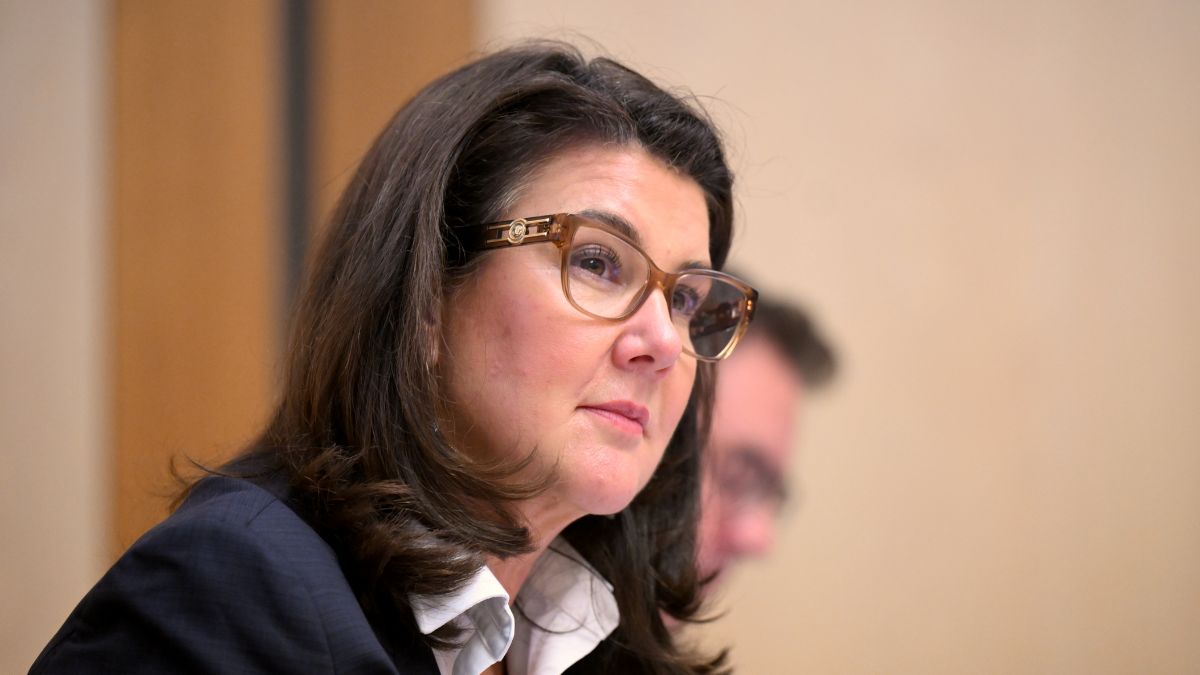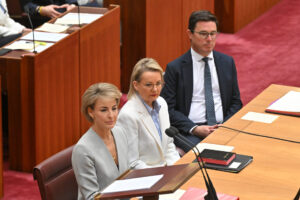Knee-jerk anti-Chinese redbaiting in Australian elections

In the final days of the campaign, independent MP Monique Ryan and Labor’s housing minister Clare O’Neil faced questions about the support of the Hubei Association for their respective campaigns.
The Hubei Association is an Australia-wide community association for those from the Hubei province, whose capital city is Wuhan… the very place where COVID-19 started. How deep does that rabbit hole go?! Somebody please get our best pundits on the case!
Neither campaign ultimately took up the Association’s offer of assistance.
The issue came up in during a regular segment featuring Liberal campaign spokesperson Jane Hume and O’Neil herself on the Seven network. Hume remarked to the minister that there “might be Chinese spies handing out” her how-to-vote cards, but the Liberals had “dozens, thousands, hundreds of young people” on the hustings.
The campaign, which appears to have run out of serious policy, seems to be resorting to a back catalogue of redbaiting and dog-whistling from Cold War-era electioneering. But the history of fearmongering about foreign interference in Australian elections runs deeper.
Historian Jon Piccini has pointed out that Australia’s first “redbaiting” election was in 1925. The Community Party of Australia had just “a few hundred members”, but that didn’t stop the PM, Stanley Melbourne Bruce, from conflating global communist activism with domestic industrial disputes. He and the right-wing press insinuated that recently founded Australian Council of Trade Unions were intending to erode the White Australia policy and aligning with Moscow.
Hardly a centenary worth celebrating.
The poisoning of public debate had real consequences. Bruce’s redbaiting cemented a political culture where it became impossible to question Australia’s defence policy centred around the British imperial presence in Asia. The Labor party had already been branded disloyal to the country and to the empire thanks to its opposition to conscription during the Great War. To emphasise their credentials, conservatives tied themselves to a declining imperial power, whose defeat in Singapore in 1942 was as predictable as it was tragic, not just for the POWs but for the civilians caught up in Japan’s imperial conquest. Australia was ill-prepared for the conflict as debate about defence strategy became a loyalty test.
During the Cold War, the Liberal-Country coalition, in government for over two decades until 1972, again used redbaiting to devastating effect. The government cultivated public angst about communist movements at home and abroad. This time, redbaiting prepared the country for a war that proved as futile as it was brutal – the Vietnam War. It also helped to prevent the Coalition government from normalising relations with China even after most other Western countries had done so.
Despite that deep history, the redbaiting on display in the recent past has been astonishingly inept (perhaps fortunately so). At the last election, Scott Morrison repeatedly claimed that the Chinese Communist Party preferred Anthony Albanese. He also described Labor’s deputy Richard Marles as the “Manchurian candidate”. But there was no serious attempt to give these slurs even a modicum of substance.
It wasn’t just Morrison. In the same election, right-wing campaign outfit Advance Australia ran billboards and truck-side ads depicting Chinese president Xi Jinping casting a vote for Labor.
But Jane Hume’s recent comments represent a new threshold in the cynicism and hollowness of redbaiting in Australia’s elections, and Clare O’Neil’s response, or lack thereof, was no more reassuring. Indeed, just minutes after Hume, with what resembles a sneer, deployed the line about ‘Chinese spies’, the two candidates were complimenting one another’s “sense of style” [sic] and promised to “have a cocktail” with each other after the campaign. All’s well that ends well – who cares about those Chinese Australians dragged in as a proxy target for the politicking?
It is perhaps reassuring that neither candidate seriously believes that those Chinese Australians were spies, but invoking the threat of foreign interference so flippantly does real damage to the social cohesion we hear so much about these days. All Australians deserve better than this kind of performativity.
Between the Lines Newsletter
The biggest stories and the best analysis from the team at the Australia Institute, delivered to your inbox every fortnight.
You might also like
“Everything is uncertain”: Trump-Xi meeting leaves the world on edge
Trump and Xi may have come to a “deal”, but their meeting was a wasted opportunity. Plus: what do Australians think about our relationship with the US?
Failing the test: Australian universities in crisis
Great countries have great institutions, but Australian universities are a mess.
Ley’s need to appease the far-right drags the Coalition into the political abyss
After months of reflection, recriminations and resolute commitments to change, we finally have the first concrete policy position for a government Sussan Ley would lead.




